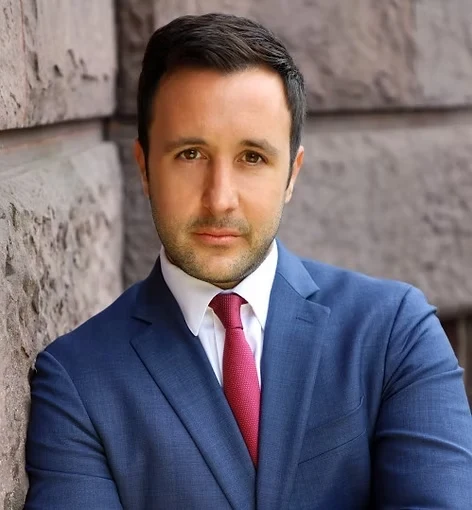Losing a family member due to someone else's negligence creates overwhelming grief and confusion about legal rights. While spouses and children typically have clear standing to pursue wrongful death claims, the situation becomes more complex when siblings or grandparents seek justice for their loved one's death.
The reality is that wrongful death laws weren't designed with a one-size-fits-all approach to family structures. Modern families often include grandparents as primary caregivers, siblings who serve as closest relatives, and extended family members who have suffered genuine emotional and financial losses. Having a wrongful death attorney evaluate your specific situation ensures you understand your rights and options during this difficult time.
Schedule A Free Case Consultation
Understanding Wrongful Death Claims and Standing
Wrongful death claims exist to provide financial compensation when someone dies due to another party's negligence, recklessness, or intentional actions. These civil lawsuits are separate from any criminal charges and focus on recovering damages for the surviving family members who suffered losses because of the death.

The concept of "standing" determines who has the legal right to file a wrongful death lawsuit. Standing requirements exist to prevent frivolous lawsuits and ensure that only those with legitimate interests can pursue claims. However, these requirements can sometimes create barriers for family members who genuinely suffered from the loss.
Each state has developed its own approach to determining who can file wrongful death claims. Some states use a hierarchical system where certain family members have priority over others. Other states allow multiple family members to file claims simultaneously or require them to join together in a single lawsuit.
The complexity of these laws means that assumptions about your rights could be completely wrong. A wrongful death lawyer familiar with your state's specific statutes can provide accurate guidance about whether you have standing to pursue a claim and what steps you need to take.
Traditional Wrongful Death Beneficiaries
Most wrongful death statutes begin with immediate family members as the primary beneficiaries. Surviving spouses almost universally have the right to file wrongful death claims, as do biological and adopted children. Parents typically have standing when their minor children die, and some states extend this right to parents of adult children under certain circumstances.
The traditional family structure that these laws assumed doesn't always match modern realities. Many families include step-relationships, domestic partnerships, and other arrangements that complicate the determination of who qualifies as a beneficiary. Additionally, some immediate family members may be estranged from the deceased, while extended family members maintain close relationships.
When traditional beneficiaries don't exist or choose not to pursue a claim, the question becomes whether other family members can step forward. This is where siblings and grandparents often find themselves questioning their legal rights and options.
Understanding the hierarchy in your state helps clarify whether you need to wait for immediate family members to act or if you can proceed independently. A wrongful death attorney can explain these priorities and help you understand your position in the legal framework.
Siblings' Rights in Wrongful Death Cases
Siblings occupy a unique position in wrongful death law that varies dramatically between states. Some jurisdictions recognize siblings as beneficiaries when no spouse, children, or parents survive. Others require siblings to demonstrate specific financial dependence or particularly close relationships to have standing.
The challenge for siblings often lies in proving their legal standing when competing with other potential beneficiaries. If parents survive, they may have priority over siblings in many states. However, when parents are deceased or unable to pursue claims, siblings may have the right to step forward as the next closest relatives.

Some states distinguish between full siblings and half-siblings, while others treat all siblings equally. The age of the deceased can also matter, as some statutes provide different rules for cases involving minors versus adults. Additionally, the relationship between siblings at the time of death may influence the court's decision about standing.
Siblings who served as caregivers, maintained close relationships, or suffered financial losses due to the death may have stronger claims than those who were estranged. However, legal standing doesn't always correlate with emotional closeness or practical impact. A wrongful death lawyer can evaluate your specific circumstances and advise whether you have viable standing as a sibling.
Grandparents' Standing in Wrongful Death Claims
Grandparents face even more complex challenges in wrongful death cases. Traditional laws rarely considered grandparents as primary beneficiaries, but modern family structures often place grandparents in caregiving roles that create genuine financial and emotional dependencies.
When grandparents raised their grandchildren or provided significant financial support, they may have stronger claims than those who maintained typical grandparent relationships. Some states recognize grandparents as beneficiaries when they can demonstrate financial dependence on the deceased or when they suffered economic losses due to the death.
The legal concept of "next of kin" sometimes includes grandparents, particularly when closer relatives don't exist. However, proving that you're the appropriate next of kin requires understanding your state's specific definitions and requirements. Courts may consider factors such as the grandparent's age, health, financial circumstances, and relationship with the deceased.
Grandparents who provided housing, education funding, or other support to their grandchildren may have suffered quantifiable economic losses that strengthen their wrongful death claims. Similarly, grandchildren who provided care or financial support to their grandparents may create dependencies that support the grandparent's standing.
Working with a wrongful death attorney helps grandparents understand whether their specific circumstances meet their state's requirements for filing claims. The attorney can also advise on strategies for demonstrating the necessary relationships and losses to support the case.
State-by-State Variations in Wrongful Death Laws
The patchwork of state wrongful death laws creates significant variations in who can file claims and what damages they can recover. Some states follow the "Lord Campbell's Act" model, which limits beneficiaries to specific family members. Others use the "survival statute" approach, which allows broader categories of beneficiaries to pursue claims.
Community property states may have different rules about spousal rights and family member priorities. States with strong family law traditions might provide more expansive rights to extended family members, while others maintain strict limitations on who can file claims.
The damages available also vary significantly between states. Some allow recovery for emotional distress and loss of companionship, while others limit damages to economic losses. The amount of damages available can influence whether it's worthwhile for siblings or grandparents to pursue claims even when they have standing.
Factors Courts Consider for Extended Family Claims
When siblings or grandparents seek to file wrongful death claims, courts typically examine several factors to determine standing and potential damages. The relationship between the claimant and the deceased receives significant attention, including the duration, closeness, and nature of their connection.
Financial dependence often plays an important role in these determinations. Courts may consider whether the claimant relied on the deceased for financial support or whether the deceased depended on the claimant. Evidence of regular financial exchanges, shared living arrangements, or other economic interdependencies can strengthen these claims.
The absence of closer relatives sometimes creates opportunities for siblings and grandparents to pursue claims. When no spouse, children, or parents survive, extended family members may have clearer paths to recovery. However, the presence of these closer relatives doesn't always preclude claims by others who suffered genuine losses.
Courts also consider the practical impact of the death on the claimant's life. Siblings who lost their primary emotional support system or grandparents who lost caregiving grandchildren may have stronger claims than those who maintained distant relationships. Evidence of regular contact, shared activities, and mutual support can help demonstrate these relationships.
A wrongful death lawyer can help you gather and present evidence that supports your standing and demonstrates the impact of your loss. They understand what factors courts find most persuasive and can develop strategies to strengthen your position.
Schedule A Free Case Consultation
The Role of Personal Representatives and Estates
Many states require wrongful death claims to be filed by the deceased's personal representative or estate administrator rather than by individual family members. This requirement can create additional complications for siblings and grandparents who want to pursue claims.
The personal representative is typically appointed by the probate court and may be a family member, attorney, or other qualified person. When immediate family members exist, they usually have priority for appointment as personal representatives. However, when no immediate family members are available or willing to serve, siblings or grandparents may be appointed.
The personal representative's duty is to act in the best interests of all beneficiaries, not just their own interests. This means that even if a sibling or grandparent serves as personal representative, they must consider the rights and interests of other family members who might be entitled to share in any recovery.
Some states allow individual family members to file their own wrongful death claims, while others require all claims to be consolidated under the estate's umbrella. Understanding your state's approach helps clarify whether you need to seek an appointment as a personal representative or whether you can file an individual claim.
Working with a wrongful death attorney who understands estate law ensures that these procedural requirements don't prevent you from pursuing justice for your loved one. They can guide you through the appointment process if necessary and help you understand your responsibilities as a personal representative.
Economic Damages for Siblings and Grandparents
Siblings and grandparents seeking damages in wrongful death cases face challenges in proving economic losses, which vary by state law and relationship circumstances. Damages may be recoverable for financial dependence, funeral expenses, or medical bills.

Grandparents who provided financial support may have stronger claims. Some states recognize the economic value of services like childcare or transportation. Calculating damages requires careful documentation and expert testimony.
A wrongful death attorney can work with economists to quantify losses and present compelling evidence. With the right approach, siblings and grandparents can pursue fair compensation for their losses and hold negligent parties accountable.
Non-Economic Damages and Emotional Losses
Non-economic damages in wrongful death cases compensate for emotional distress, loss of companionship, and psychological impact. Siblings and grandparents with close relationships may have significant claims.
Availability of these damages varies by state, with some jurisdictions allowing recovery for grief and emotional distress. Courts consider factors like frequency of contact and shared experiences.
Grandparents who helped raise grandchildren may have substantial non-economic damages due to the unique bond. Proving these damages requires evidence of the relationship's depth, such as family photographs and testimony. A wrongful death attorney can help gather and present this evidence effectively to support your claim.
Challenges and Obstacles for Extended Family Claims
Siblings and grandparents pursuing wrongful death claims face unique challenges, including proving standing and defending against aggressive challenges from insurance companies and defendants. The burden of proof is often higher for extended family members, requiring evidence of dependence, relationship closeness, or financial losses.
Coordination with other family members can be complicated, and internal conflicts may weaken the case. Time limitations also pose challenges, with short statutes of limitations that may expire before extended family members learn about their rights. A wrongful death attorney can help navigate these challenges and preserve rights, ensuring timely action to pursue fair compensation.
Building a Strong Case as an Extended Family Member
Siblings and grandparents pursuing wrongful death claims must build strong cases by gathering comprehensive evidence of their relationship and financial dependencies. Documentation, such as bank records and personal correspondence, helps prove economic relationships and emotional bonds.
Witness testimony from friends, family, and community members can provide powerful evidence, while expert testimony from economists and psychologists can quantify economic losses. A wrongful death attorney with experience in extended family claims can develop effective strategies, guide evidence collection, and help prove standing and damages. With the right approach, extended family members can build a strong case and seek justice for their loved one.
Taking Action to Protect Your Rights

If you're a sibling or grandparent considering a wrongful death claim, consult a wrongful death attorney promptly to preserve your rights. Statutes of limitations are short, and evidence can disappear over time.
An initial consultation helps you understand your options, state laws, and potential challenges. Even if you're unsure about your rights, seeking legal advice informs your decisions. Wrongful death claims hold negligent parties accountable, potentially preventing similar tragedies.
While financial compensation can't undo grief, it can provide security and a sense of justice. A skilled attorney ensures your voice is heard and your loved one's memory is honored.